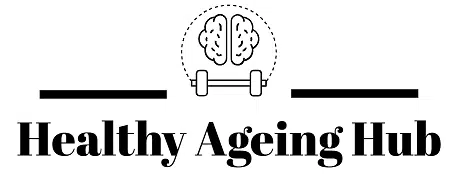Do you feel overwhelmed by your thoughts, with no clear way to sort them out? Here’s an enlightening fact: Journaling and Self-Reflection is a proven tool for organizing ideas and navigating complex emotions.
This blog post explores the transformative power of writing as a means of self-reflection, offering practical steps to ignite your creative potential through journaling. Ready to embark on an inspirational journey of personal discovery? Let’s dive in!
Key Takeaways
- Journaling is a powerful tool for self – reflection and personal growth, helping us understand ourselves better and find clarity in our lives.
- Regular journaling can ignite creativity by allowing us to express our true feelings without fear, leading to fresh ideas and new perspectives on old problems.
- Journaling enhances decision – making skills and elevates thinking, providing a valuable tool for personal and professional growth.
Unleashing the Power of Journaling and Self-Reflection

Journaling has a profound impact on personal growth and self-reflection, allowing individuals to tap into their inner serenity and gain clarity in their lives.
The Impact of Journaling and Self-Reflection
Journaling is more than just writing down thoughts. It works like a mirror, showing us our feelings and ideas. This helps us understand ourselves better. With journaling, Sara found her true passion and made a career change.
Mark used it to heal from past pain. Journaling can cut stress and make you feel better overall. We can use it to meet the challenges of life and light up our creativity. This old practice has no rules, so we are free to express in any way we want.
The Significance of Journaling
Journaling is a tool for self-discovery and can bring about personal transformation. It lets you explore your inner selves, watch how your thoughts flow, and track life challenges.
Its regular practice strengthens one’s self-awareness and encourages growth in personal development. Journaling also helps relieve stress symptoms while improving overall well-being.
This long-time practice of writing down thoughts, feelings, or ideas brings about an emotional healing process like no other form of therapy does by organizing these inner emotions on paper leading to bursts of clarity.
This makes the journal a cherished companion not only as a therapeutic outlet but also as our mirror to see hidden truths within ourselves unfold through written word.
How Journaling and Self-Reflection Ignite Your Creativity

Journaling helps to set free your inner writer and boosts creativity. Using written words as a tool, you can express your true feelings without fear. This leads to fresh ideas and bold changes in thought patterns.
You may find new ways to solve old problems or think of interesting stories.
In journaling, the blank page is like a canvas for your mind. Drawing, writing, or mind mapping can all light up creative sparks. It gives you space to test out new concepts before sharing them with others.
Journaling also allows for value determination and exploring new sides of your personality facets.
The Benefits of Journaling

Journaling enhances decision making and elevates thinking, providing individuals with a valuable tool for personal and professional growth. Journaling for 10 minutes before bed can improve sleep quality by over 25%
Enhanced Decision Making
Journaling boosts your decision-making process. It helps sort out ideas and feelings on paper. This makes things clear in your mind. You see different sides of a problem. Then you can make better choices.
Journaling also lets you know what values matter most to you. This way, making choices align with those values becomes easy. Your anxiety or stress will not cloud your judgment anymore! Do this daily for the best results.
85% of participants reported improved decision-making abilities after journaling daily for one month.
| Benefit | Statistic |
|---|---|
| Stress Relief | Journaling for 15-20 minutes per day can reduce stress by up to 15% 1 |
| Enhanced Creativity | 95% of participants in a study reported enhanced creativity after keeping a journal for one week |
| Improved Mental Health | Journaling for 3-5 times per week lowered depressive symptoms by more than 20% in a recent study |
Elevated Thinking
Journaling and self-reflection has the power to elevate our thinking and expand our perspectives. When we engage in regular journaling, we create a space for our thoughts and ideas to flow freely, allowing us to explore new possibilities and gain insights into ourselves and the world around us.
Through journaling, we can organize our thoughts and ideas more effectively, enabling clearer communication with others. Studies have shown that journaling enhances metacognition, which is the process of thinking about our own thinking.
This heightened self-awareness can lead to improved decision-making skills, as well as personal and professional growth. By elevating our thinking through journaling, we open ourselves up to new opportunities for creativity, problem-solving, and self-discovery.
Did you know? Journaling has been embraced by various social movements like Me Too movement or Black Lives Matter movement as it offers a valuable platform for individuals to express their experiences and challenge societal norms.
Writing down our thoughts can provide an outlet for reflection on important issues while also serving as a record of history in the making. The act of writing allows us to explore different perspectives, question existing beliefs, and contribute meaningfully to important conversations within society.
Starting Your Journaling and Self-Reflection Journey

Get started on your Journaling and Self-Reflection journey with practical tips and recommended methods.
Practical Tips
- Find a quiet and comfortable space where you can focus on your journaling.
- Set aside dedicated time each day or week to journal, even if it’s just for a few minutes.
- Use a notebook or journal that you enjoy writing in and that reflects your personal style.
- Experiment with different journaling methods to find what works best for you, such as visual journaling, stream of consciousness writing, or gratitude journaling.
- Start with a simple prompt or question to get your thoughts flowing, such as “What am I grateful for today?” or “How am I feeling right now?”
- Write without judgment or censorship, allowing yourself to express your true thoughts and feelings.
- Consider using prompts from books or resources that inspire you, such as “The Daily Stoic” by Ryan Holiday and Stephen Hanselman or “The Artist’s Way” by Julia Cameron.
- Use your journal as a tool for problem – solving by brainstorming ideas and exploring different perspectives.
- Write about both positive experiences and challenges to gain insights into patterns and behaviors.
- Reflect on your previous entries periodically to track progress, identify areas of growth, and celebrate milestones.
Remember, the most important thing is to be consistent with your journaling and self-reflection practice. With time and dedication, you will begin to unlock the transformative power of writing in your own life. Happy journaling!
Recommended Journaling and Self-Reflection Methods
Journaling offers a variety of methods to suit different preferences and purposes. Here are some recommended journaling methods:
- Daily Journaling: Set aside a few minutes each day to write about your thoughts, experiences, or goals.
- Visual Journaling: Use drawings, doodles, or collages to express yourself and capture visual representations of your thoughts and feelings.
- Stream of Consciousness Journaling: Write freely without self-censorship or judgment, allowing your thoughts to flow onto the pages.
- Free Writing Journaling: Write continuously for a set amount of time, exploring ideas without worrying about grammar or structure.
- Gratitude Journaling: Reflect on what you are grateful for each day, jotting down specific things or moments that bring you joy and appreciation.
- Bullet Journaling: Utilize bullet points and symbols to record tasks, events, goals, and reflections in a structured and organized manner.
Conclusion
Journaling and Self-Reflection is a transformative practice that unlocks the power of self-reflection and unleashes creativity. By journaling regularly, we can gain clarity, reduce stress, and improve our overall well-being.
Whether through writing, drawing, or mind mapping, journaling offers a safe space for personal growth and discovery. So grab your pen and start your own journaling journey to unlock the remarkable transformations that writing can bring.
FAQs
1. What can Journaling and Self-Reflection do for me?
Journaling helps you unleash potential, decrease stress, improve well-being, and express feelings. It’s a safe space for self-expression during your personal journey.
2. How does Journaling and Self-Reflection help with mental health?
Journaling is great to navigate emotions like sadness or anxiety symptoms. Writing regularly can enhance your mental well-being and even boost your immune system.
3. Can I practice creativity through journaling?
Yes! Journaling encourages creativity and creative expression on the blank canvas of paper. You may notice remarkable transformations in how you think and create!
4. Is there a right way to start Journaling and Self-Reflection?
No hard rules exist in journaling! Make it a part of your daily routine or use it as an occasional tool for self-improvement; it’s all about authentic self-expression.
5. Does Journaling and Self-Reflection only benefit personal life?
Not at all! Journal writing boosts effective communication which can lead to professional advancement too—it has boosted workplace efficiency in places like Amazon!
6.How does one go about therapeutic Journaling and Self-Reflection?
Begin by setting aside some quiet time each day just for yourself—writing down thoughts, feelings, or simply describing the day or listing goals—a judgment-free zone that allows room for reflection.

